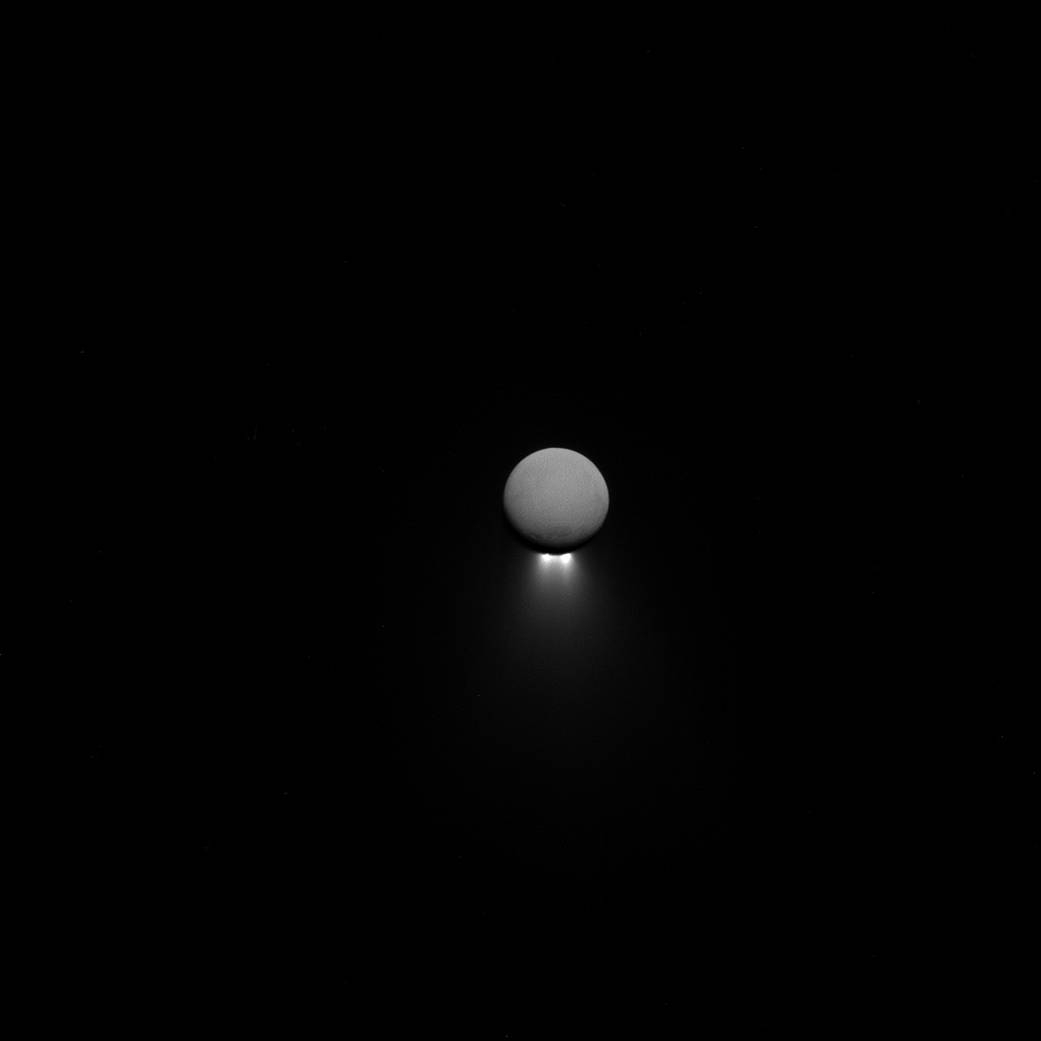Could alien life exist on Enceladus? Scientists say earthly microbes could survive on Saturn's moon
Saturn's icy moon has become an alien hunting hotspot after water and organic molecules were discovered under its surface.



Saturn's sixth-largest moon Enceladus has become an alien hunting hotspot ever since scientists discovered water and organic molecules in the icy moon's plume. But does Enceladus have the appropriate conditions to host alien life?
A new study revealed that some hardy microbes, living in extreme conditions in the deepest parts of the Earth's oceans, could theoretically survive on Enceladus. The new research hints at the possibility that we may have to look no farther than our very own solar system to potentially find alien life.
According to the international team of scientists involved in the new research, Enceladus may possess ideal conditions for single-celled earthly microorganisms called methanothermococcus okinawensis to thrive on the icy moon.
On our planet, these microbes are found in areas with extremely hot temperatures, such as near deep sea hydrothermal vents. These microbes also convert carbon dioxide and hydrogren gas into methane.
Nasa's Cassini spacecraft, before it plunged to its demise last year, helped uncover the presence of methane and dust in the plumes of Enceladus.
"We were able to show that, under putative Enceladus conditions, biological methane production occurs in the lab," the study's co-author Simon Rittmann, of the University of Vienna, told Space.com. "Hence, some of the methane detected on Enceladus could in principle be of biological origin."
In a lab experiment, the researchers exposed the methane-producing archaean microbes to similar conditions to what is expected to be found at the hydrothermal vents of Enceladus' seafloor.
"Based on our findings, it might be interesting to search for methanogenic biosignatures on icy moons in future space missions," the scientists wrote in their research paper, published in the journal Nature.
However, the findings of the new study are by no means conclusive proof of the existence of alien life on Enceladus. In fact, according to Rittmann, the new research only hints at the possibility that the icy moon "could be" an ideal host for extraterrestrial life – specifically, microbial life.
"Our study only concerns microorganisms. I would like to avoid any speculation about intelligent life," Rittmann told AFP.
However, according to the scientists, the findings of the new research, along with the estimated conditions of Enceladus made by previous studies, would make it "worthwhile to increase efforts" in the hunt for life on Enceladus and beyond.






















